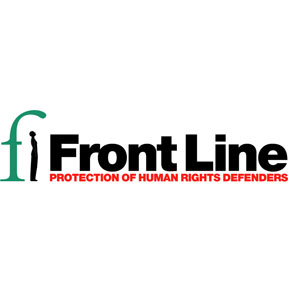Front Line Defenders' 2013 Annual Report on Global Trends for Human Rights Defenders Published
On 23 January 2013 Front Line Defenders released its fourth Annual Report on Global Challenges facing Human Rights Defenders around the World in 2012.
The report explores the situation on both the global and regional level including several countries examined in focus namely: Burundi, Vietnam, Guatemala Kazakhstan and Algeria. It highlights the 'unabated' targeting of human rights defenders for their work documenting abuses, exposing corruption, or pushing for reform.
“The attacks and killings highlighted in this report are only the tip of the iceberg. In many countries the government has either shut down the local media, subjected human rights organisations to campaigns of intimidation or tried to silence those brave enough to bring the facts to international attention” said Front Line Defenders Executive Director Mary Lawlor.
The report highlights:
-24 killings of HRDs in 2012
-Physical Attacks on HRDs reported in 28 countries across all regions:
-Attacks on LGBTI human rights defenders in Chile, Costa Rica, Ecuador, Kyrgyzstan, Russian Federation, South Africa, Uganda, Ukraine, and Zimbabwe.
-Restrictive legislation passed or under discussion in Algeria, Azerbaijan, Burundi, China, Egypt, Iraq, Israel, Lithuania, Moldova, Russian Federation, and Ukraine
-Judicial harassment reported in nearly 40 countries
-Information technology laws used against those expressing dissent or circulating information on human rights abuses, in particular in Asia and the Middle East.
-Reprisals for cooperating with international human rights bodies were reported by HRDs in Bahrain, Belarus, Colombia, Kazakhstan, Saudi Arabia, and Sri Lanka
“The facts speak for themselves”, said Ms Lawlor “The sad reality is that while governments proclaim support for human rights and their respect for the work of human rights defenders in international fora, in practice, human rights defenders face a daily struggle for survival”, added Ms Lawlor.
This report shows how the safe space in which human rights defenders work is consistently shrinking, while their personal credibility is attacked through state sponsored defamation campaigns in which they are routinely portrayed as agents of western/foreign interests. The introduction of restrictive legislation which limits both their work and their ability to source international funding is increasingly used to hamper their work.
The Report highlights the alarmingly high number of killings of human rights defenders and the fact that Front Line Defenders alone has documented physical attacks on human rights defenders in 28 countries and 24 killings of human rights defenders. Conditions for human rights defenders in Africa, Asia and the Middle East continue to be worrying while the report finds that that in many countries in Europe and Central Asia the situation has actually deteriorated.
On the regional level many countries in Africa have seen a series of disturbing ongoing trends including physical violence, and impunity for perpetrators. As noted in the report the murder of two LGBTI rights defenders Thapelo Makhutle in South Africa and Maurice Mjomba in Tanzania illustrate these risks.
Such impunity is also commonly seen in the Americas alongside a common trend, the use, region-wide, of fabricated criminal charges such as those that have resulted in an 18-year prison sentence for Colombian human rights defender David Rabelo Crespo.
Asia has seen the continued usage of smear campaigns against human rights defenders branding them as 'enemies of the state or as working for foreign interests'. One example of such a case can be seen in India with the branding of P.V. Rajagopal, Vice Chairman of the Gandhi Peace Foundation, as a 'Maoist sympathiser'.
The situation in Europe and Central Asia is characterised by the increasing use in many countries of legislation to curb the activities of human rights defenders. This is particularly evident in the Russian Federation with a swathe of legislation being implemented including a law designating NGO's in receipt of foreign funding as 'foreign agents'.
Finally in the Middle East and North Africa region the report confirms the fears of 'limited real change' despite the events of the Arab Spring that 'gave hope to thousands of people in virtually every country in the region'. In Bahrain in particular almost all of the most vocal human rights defenders were in detention at year's end including former Front line Defenders staff member Abdulhadi Al-Khawaja.
The Report is based on Front Line Defenders' work in support of human rights defenders at risk. In 2012, Front Line Defenders issued 287 urgent appeals on 460 human rights defenders at risk in 69 countries; it provided 267 security grants and trained 358 human rights defenders. Overall, more than 1100 HRDs benefited from Front Line Defenders’ protection support in 2011.
Files
- frontline_annual_report2013.pdf (1.24 Mb)


















